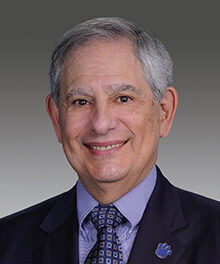
A recent headline caught our attention: local nursing homes agreed to pay up to $6.9 million to settle kickback and fraud allegations under the Medicare and Medicaid programs. The federal government, along with many states, have ramped up their investigation fraud and abuse situations under the Anti-Kickback Statute and the physician self-referral law often referred to as the “Stark law.” The nursing home industry is increasingly the target of these investigations.
The settlement with the four nursing homes resolves an investigation into allegations that their employees paid kickbacks to discharge planners at Scripps Mercy Hospital San Diego to induce patient referrals to the nursing homes in violation of the federal Anti-Kickback Statute.
It is illegal to pay or receive anything of value in exchange for the referral of patients for designated healthcare services.
This case and many of the Federal investigations are known as “qui tam” cases. Qui tam is an abbreviation of the Latin phrase qui tam pro domino rege quam pro se ipso in hac parte sequitur, meaning “[he] who sues in this matter for the king as well as for himself.” These cases are also known as “whistleblower” cases. In this way, individuals who find illegal patient referral and kickback situations can sue on behalf of the government. Many of these suits have originated with employees or former employees who have advised their employers of their belief that an action is illegal, and then filed suit on behalf of the government when their employer did not modify their procedures to adhere to the law. Qui tam cases allow the whistleblower to receive a portion of the settlement for initiating the lawsuit.
The central issue in the Scripps Mercy case was the kickback for the referrals. Patient referrals, in and of themselves, are not illegal; the actions of the U.S. attorney centered on the kickbacks that induced the referrals. The Anti-Kickback Statute specifies a blanket ban on all financial arrangements related to referrals.
The Stark Law allows certain exemptions to this outright ban but specifies that, when there is the potential for referrals between provider organizations, a financial arrangement between the two organizations must be set at fair market value and be commercially reasonable.
Some scenarios that are helpful to skilled nursing facilities and other healthcare providers in understanding the financial relationships between provider organizations that must meet the test of being fair market value include the following:
- Failure to charge a fair market value fee in exchange for services provided to or from an organization with referrals. As an example, a home health agency may provide a variety of services in arranging home health or DME services on behalf of a physician group. In general, physicians need to prepare the required information for the patient before a home health referral is made. If a home health agency contracts with a physician group to provide these services and only charges the physician group for the services rendered when the ultimate referral goes to a home health agency other than itself, it might well be argued that the agreement is not fair market value. An unrelated third party providing the same services to the physician group would, by economic necessity, charge for the services rendered without regard to which home health agency received the referral or, in fact, if no home health agency referral was ultimately consummated.
- Providing services to a select subset of physicians based on the relative frequency of their prescribing a particular drug or category of drug, for a price that is below fair market value for the services and where the services (at that same price) are not available to other providers who do not meet the prescribing level. Clearly, it can be argued that services are not being provided at an arm’s length fair market value and at a commercially reasonable price if they are only being provided based on referrals (and the referrals can, in fact, be the writing of prescriptions, as well as the direct provision of traditional patient services).
- The payment of physicians by a healthcare institution for “medical directorship” services when (a) no real services are being provided and/or (b) the services are being paid for at above fair market value. Because the Department of Health and Human Services generally provides that the payment for “goodwill” in the purchase of physician practices by a hospital or other healthcare institution may be deemed as a payment for future referrals. Hospitals and physicians may be inclined to “find a way around the rules” by making unrelated payments. Because the definition is all-inclusive, overpayment for the assets acquired in a physician practice purchase or payment of compensation in any form at above fair market value, based on the physician’s performance as well as specialty angiography, will usually be deemed as a kickback.
In addition to the payment of fines, the negative publicity, and the legal and other professional costs involved in a kickback investigation, settlement with the federal government will usually involve a corporate integrity agreement (CIA) with a compliance program that may last from one or two years to up to five years. This is both an additional cost that will be incurred as well as an administrative burden on all aspects of the provider system. The CIA requires the retention of a third-party to monitor compliance.
Clearly, all healthcare organizations need to continue to pay particular attention to fair market value pricing in all transactions with potential referral sources, without regard to whether they are making referrals or receiving referrals.



















